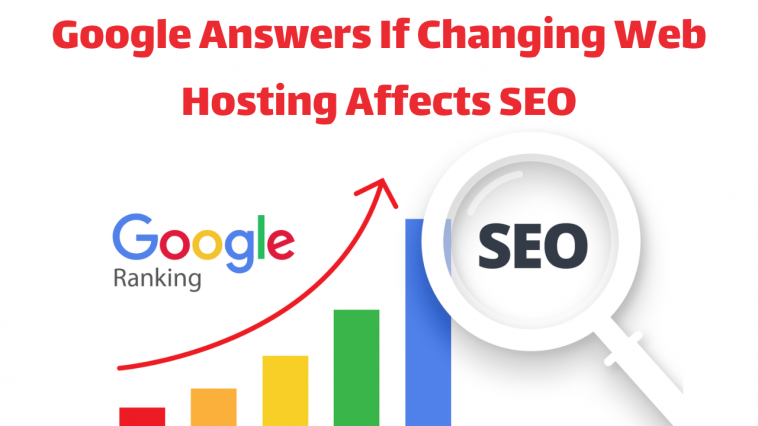In response to a query concerning whether switching web hosts could hurt SEO and ranks, Gary Illyes of Google provided his thoughts. It makes sense to ask since switching to a new web host for a website entails technical details that could go wrong and have an instantaneous negative impact.
What Does Changing A Website Host Entail?
Switching web hosts can be challenging, but if the website is simply a WordPress site, moving to a new server is relatively easy, mainly if you use plugins.
However, if you’re already experienced with using an SFTP program and managing a website’s database with programs like phpMyAdmin, performing a manual transfer is pretty straightforward.
In response, Gary Ilyes suggests going “by the book,” which is a lot of work and could be intimidating if you’ve never done it before.
Does Changing Website Hosting Affect SEO?
This is the query that was posed:
“My company is thinking about moving our website to a different host. Would making the switch have a detrimental, long-term impact on our SEO rankings?
Gary Illyes of Google answered:
“Changing hosts shouldn’t have a negative impact on your pages’ rankings in Google’s search results if you follow the book, which means the website remains resolvable and the actual downtime is minimal.”
Two Things To Consider
In his response, Gary Illyes assumes that the new web host is just as excellent as the previous one. Naturally, lowering the site hosting could have unfavourable effects ranging from mild to severe.
Gary pointed out two things to consider:
- Domain resolution for websites
- There is little downtime.
-
Domain resolution for websites
This is a reference to the process by which the domain name is converted to an IP address that corresponds to the hosting location of the website. This usually entails updating the Name Servers (NS) data at the domain name registrar after acquiring it from the new internet hosting platform where the site files are located. The new web hosting space’s correct IP address should also be included in the A Record (Address Record), along with other email-related entries.
2. There is little downtime.
It may surprise you to learn that even if your website is unavailable for several weeks, it will retain its ranks indefinitely as long as everything is restored to its original state. I’ve run websites for 25 years so that I can attest to this firsthand. For instance, my websites have occasionally gone down because of hard drive failure at the dedicated web server, erroneous settings that resulted in 500 problems, and the need to take a website offline to fix data that had been hacked.
A website can bounce back after being unavailable for several weeks, but in my experience, Google takes a few weeks to crawl through all of the web pages again and re-add them to the search engine results pages (SERPs).




